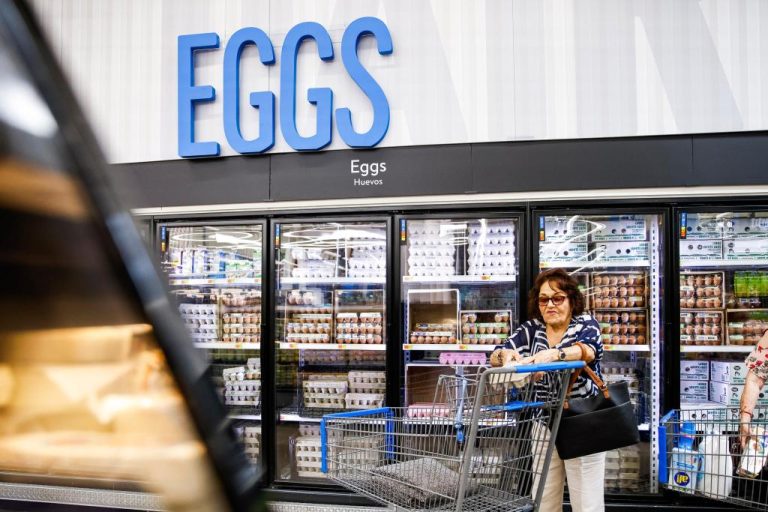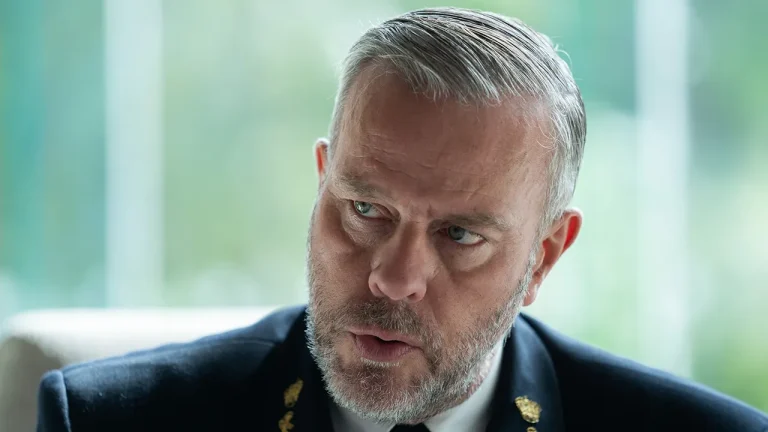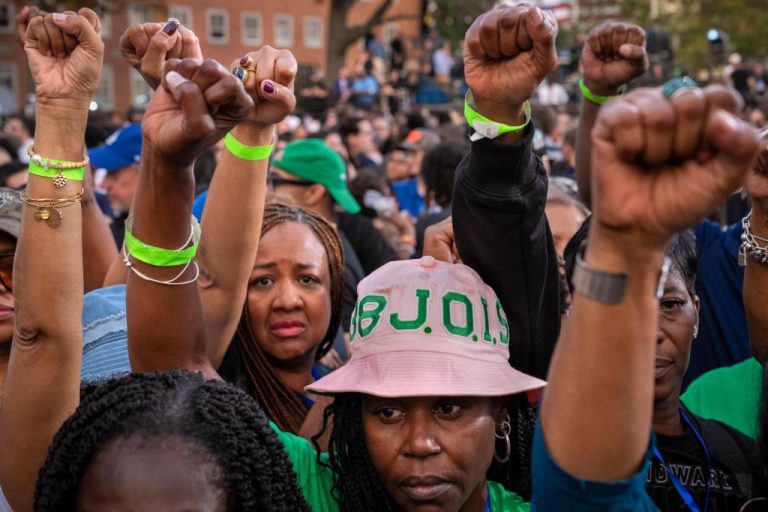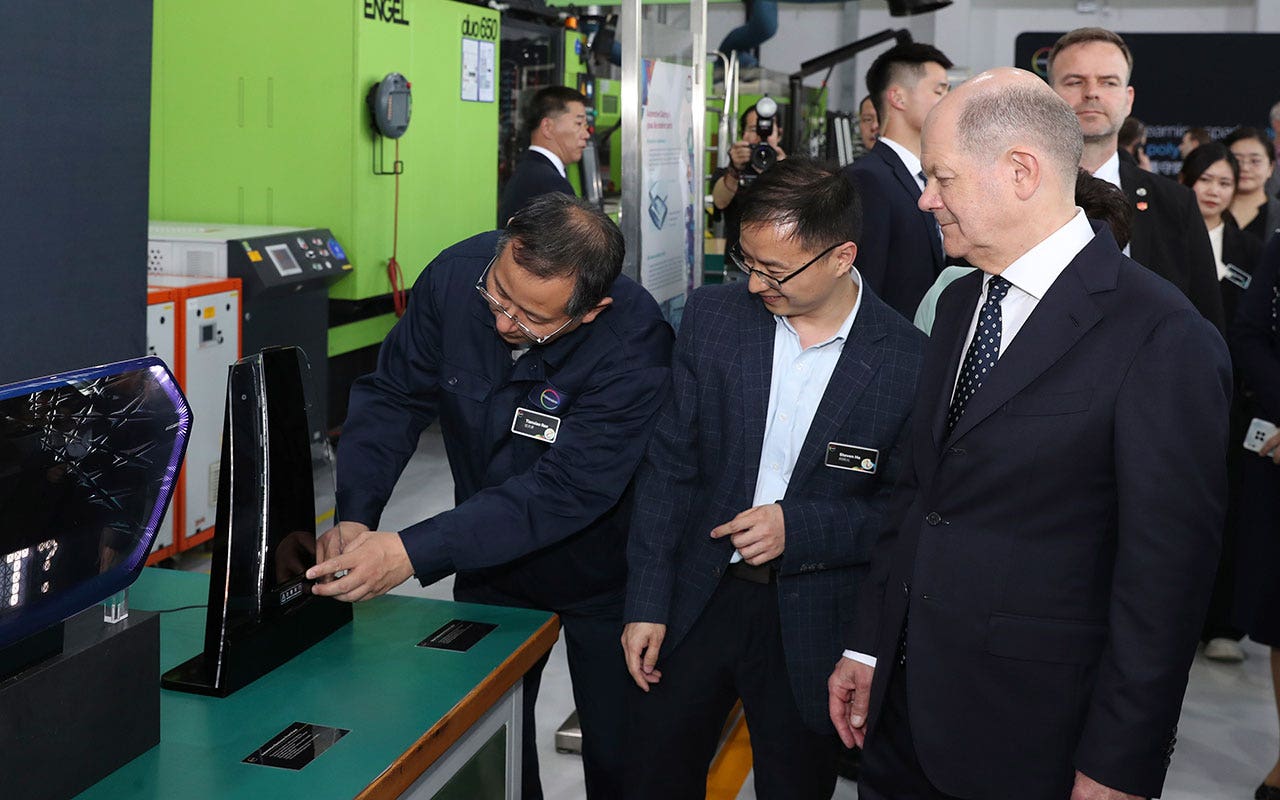
- Russia’s invasion of Ukraine has posed a threat to global security, German Chancellor Olaf Scholz told Chinese leader Xi Jinping on Tuesday.
- Scholz criticized Russia’s actions as violations of the UN Charter’s principle of national border inviolability.
- He urged Xi to leverage China’s influence with Russia to end the war.
German Chancellor Olaf Scholz told Chinese leader Xi Jinping on Tuesday that Russia’s invasion of Ukraine threatens global security, in an apparent call for China to apply greater pressure on its neighbor and close strategic partner to resolve the conflict.
Scholz also said the use of nuclear weapons in the two-year-old war should not even be threatened, according to a German government transcript of his brief remarks at the start of a meeting with Xi in the Chinese capital.
Russian President Vladimir Putin warned last month that his government is ready to use nuclear weapons if its sovereignty or independence is threatened, his latest such threat since invading Ukraine.
GERMANY AND POLAND RULE OUT SENDING TROOPS TO UKRAINE AS TENSIONS WITH RUSSIA ESCALATE
Russia’s actions “violate a principle of the United Nations Charter, the principle of the inviolability of national borders,” Scholz said.
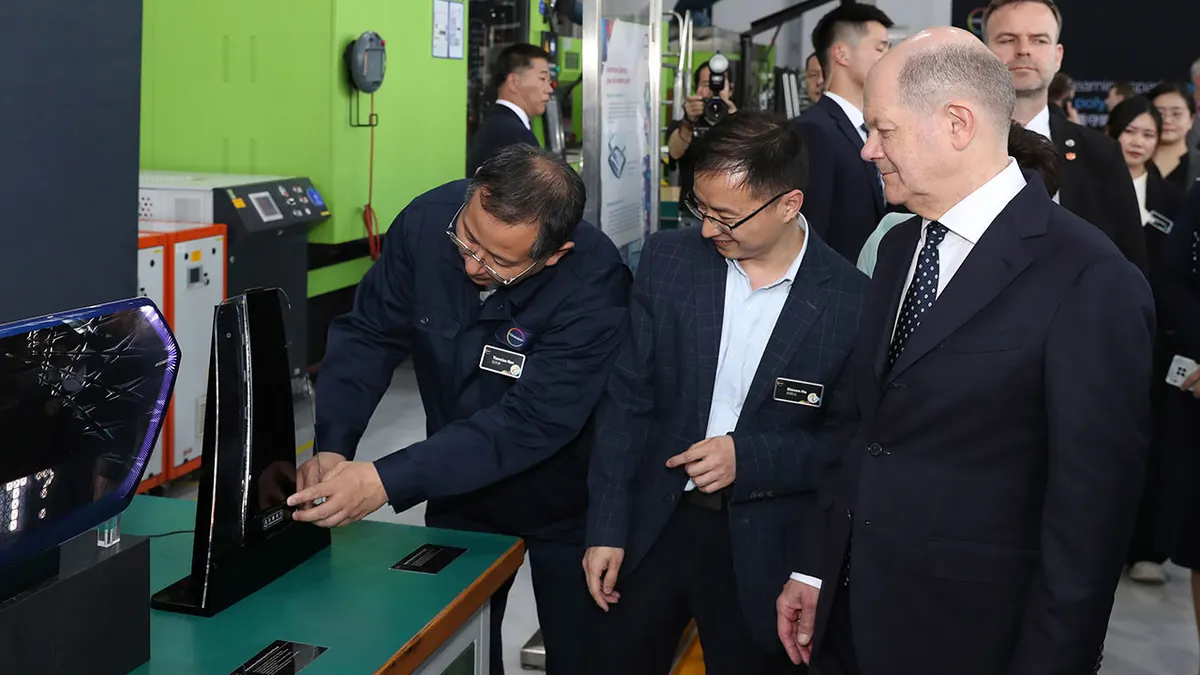
German Chancellor Olaf Scholz, right, visits German company Covestro’s Asia-Pacific Innovation Center in Shanghai on April 15, 2024. Scholz told Chinese leader Xi Jinping on Tuesday that Russia’s invasion of Ukraine threatens global security, in an apparent call for China to apply greater pressure on its neighbor and close strategic partner to resolve the conflict. (Fang Zhe/Xinhua via AP)
China has refused to criticize the invasion. While the government says it is not sending military aid to Moscow, it has provided an economic lifeline that has helped it cope with sanctions from the West. A U.S. intelligence report last week found Beijing has increased equipment sales to Moscow to indirectly boost its war effort against Ukraine.
A Chinese statement said the two leaders noted that China and Germany stand committed to the U.N. Charter and oppose the use of nuclear weapons.
“China encourages and supports all efforts that are conducive to the peaceful resolution of the crisis, and supports the holding in due course of an international peace conference that is recognized by both Russia and Ukraine and ensures the equal participation of all parties and fair discussions on all peace plans,” the Chinese statement said.
GERMAN LAWMAKERS REJECT OPPOSITION CALL TO SEND TAURUS LONG-RANGE CRUISE MISSILES TO UKRAINE
In a post on X, formerly Twitter, Scholz said he had asked Xi to use his influence with Russia.
“China’s word carries weight in Russia. So I asked President Xi to bear upon Russia so that Putin finally breaks off his insane campaign, withdraws his troops and ends this terrible war,” he wrote.
On trade, Xi told Scholz that their two countries should stay vigilant against the rise of protectionism and take an objective view of the issue of manufacturing capacity, according to the statement.
Scholz had called for fair competition in trade while warning about dumping and overproduction during a talk to Chinese college students on Monday in the financial hub of Shanghai, where German companies have major investments.
His visit has underscored trade-related tensions as the European Union and the United States complain that China is competing unfairly through the use of tariffs, intellectual property theft and political interference.
Meeting later Tuesday with Chinese Premier Li Qiang, Scholz called for concrete improvement in market access, fair competition, intellectual property protection and the legal system.
In order for German companies to continue operating in China, “they need the right conditions,” he said.
CLICK HERE TO GET THE FOX NEWS APP
The European Union is mulling tariffs to protect its producers against cheaper Chinese electrical vehicle imports, which some fear will flood the European market.
Scholz began his three-day China trip on Sunday in the industrial hub of Chongqing, where he and his delegation of ministers and business executives visited a partially German-funded company and other sites in the vast city, which is a production base for China’s auto and other industries.
He was expected to depart Tuesday night to return to Berlin.
Despite the political and trade frictions, China was Germany’s top trading partner for the eighth straight year in 2023, with 254.1 billion euros ($271 billion) in goods and services exchanged between the sides, slightly more than what Germany traded with the U.S. but a 15.5% contraction from the year before.
This is Scholz’s second trip to China since he became chancellor in late 2021. It is his first visit since the German government last year presented its China strategy, which met with criticism from Beijing. Li, the Chinese premier, visited Berlin in June.


